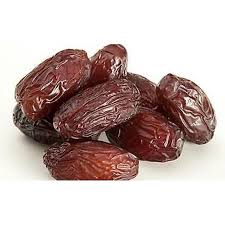Kurma Medjool: the Auspiciousness of Dates Across Cultures

Dates, nature’s candy, have captivated taste buds and enriched cultures for millennia. The majestic Kurma Medjool, known for its large size and luxurious texture, reigns supreme among date varieties. But the significance of dates extends beyond their deliciousness. They hold a special place in various cultures and religions, often associated with auspiciousness and symbolic meaning. This blog post delves into the world of Kurma Medjool, and explores the fascinating tapestry of cultural and religious beliefs surrounding the auspiciousness of dates.
A King Among Dates: Unveiling the Majesty of Kurma Medjool
Kurma Medjool, also known as the “King of Dates,” boasts several unique characteristics:
- Size and Appearance: These dates are undeniably large, often exceeding the size of other varieties. They boast a deep brown, wrinkled skin and a soft, almost caramel-like texture.
- Rich and Sweet Flavor: Medjool dates offer a delectable sweetness with hints of honey, caramel, and a touch of spice. Their rich flavor and luxurious texture have earned them the reputation of being the “candy of kings.”
- Nutritional Powerhouse: Like other date varieties, Kurma Medjool is packed with essential nutrients like fiber, potassium, magnesium, and vitamins, contributing to their potential health benefits.
Beyond their inherent deliciousness, Medjool dates hold a special place in various cultures, often associated with luxury and indulgence.
A Tapestry of Beliefs: Exploring the Auspiciousness of Dates Across Cultures and Religions
Dates hold immense significance in various cultures and religions, often woven into traditions and beliefs associated with auspiciousness, good fortune, and blessings. Here’s a glimpse into some fascinating examples:
- Islam: Dates hold immense significance in Islamic traditions. Muslims traditionally break their fast during Ramadan with dates and water, a practice believed to have been followed by Prophet Muhammad himself. Dates are also associated with hospitality and offered to guests as a symbol of welcome and respect.
- Judaism: Dates are mentioned in the Torah and hold symbolic meaning during the celebration of Rosh Hashanah, the Jewish New Year. They represent sweetness and hope for a good year ahead.
- Christianity: In some Christian traditions, dates are associated with symbols of Christ and the Virgin Mary. They may be incorporated into religious celebrations and rituals.
- Hinduism: Dates are offered to deities in Hindu rituals and are considered to be auspicious offerings. They are also believed to bring good luck and prosperity.
- Ancient Egypt: Dates were considered a sacred fruit in ancient Egypt and were used in religious ceremonies and offerings. They were also valued for their medicinal properties and used in traditional remedies.
These are just a few examples of the diverse and fascinating ways dates are associated with auspiciousness and symbolism across cultures and religions. They highlight the deep connection these delectable fruits have with various communities and traditions.
Conclusion: A Journey Beyond the Sweetness
Exploring the world of Kurma Medjool and delving into the cultural and religious beliefs surrounding the auspiciousness of dates offer a deeper appreciation for these versatile fruits. From their inherent deliciousness to their symbolic significance, dates weave a unique tapestry across cultures and traditions. So, the next time you savor a Kurma Medjool or any date variety, remember the rich history and diverse beliefs that contribute to their unique place in the world.
Key Highlights:
- Kurma Medjool, known for its large size and luxurious texture, is considered the “King of Dates.”
- Dates hold significant meaning in various cultures and religions, often associated with auspiciousness, good fortune, and blessings.
- From breaking fast during Ramadan to symbolizing sweetness and hope in various traditions, dates offer a glimpse into the diverse tapestry of cultural and religious beliefs.